Best Movies to Watch After Doctor Strange in the Multiverse of Madness
If you were thrilled or even underwhelmed by Doctor Strange in the Multiverse of Madness, we've got some movies that will make excellent follow-ups to Marvel's latest MCU entry.
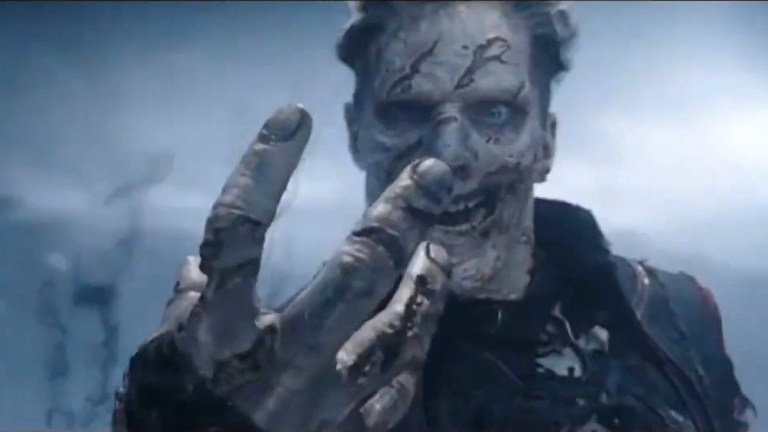
This article contains Doctor Strange in the Multiverse of Madness spoilers
If box-office receipts are any indication, you’ve probably watched Doctor Strange in the Multiverse of Madness at least once. You may have loved it, thrilled by Sam Raimi’s wild direction and its gnarly imagery. Or you may have hated it, disappointed by its nonsensical plot decisions and waste of talented actors.
Whether you’re all in or all out on Multiverse of Madness, the latest MCU entry has connections to a bevy of other cinematic offerings. These ten movies are sure to appease those disappointed by Doctor Strange’s trip across alternate realities and sate those hungry for more mind-bending heroics.
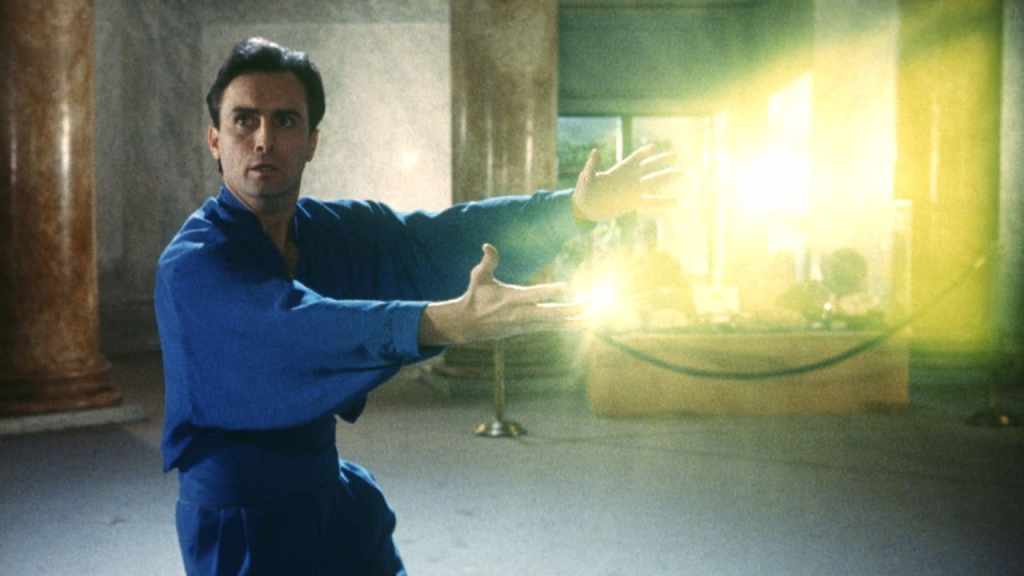
Doctor Mordrid (1992)
These days, we think of the MCU as an unstoppable monolith, the king of the pop culture landscape. But that wasn’t always the case. In fact, in the 1990s Marvel Comics filed for bankruptcy, and only stayed afloat by selling the film rights to many of its properties. While those rights eventually came to fruition in the form of 1998’s Blade, 2000’s X-Men, and 2002’s Spider-Man, it also led to a lot of projects that were never released. Among the more notable is a Doctor Strange adaptation planned by Albert and Charles Band, founders of schlock staple Full Moon Features. But when the film rights ran out before production could begin, the ever-resourceful Bands refused to let a good idea go to waste.
Directed by Albert Band, Doctor Mordrid focuses on a powerful wizard in a battle to prevent the evil sorcerer Kabal (not the Mortal Kombat guy) from releasing the dark Fourth Dimension on Earth. As you might guess, this is a Doctor Strange script with a few proper nouns switched out to remove Baron Mordo and the Dark Dimension. While the movie somehow sports effects only marginally better than the 1978 Dr. Strange tv movie, it does feature Jeffrey Combs in the lead role, who is the greatest special effect any filmmaker could want.
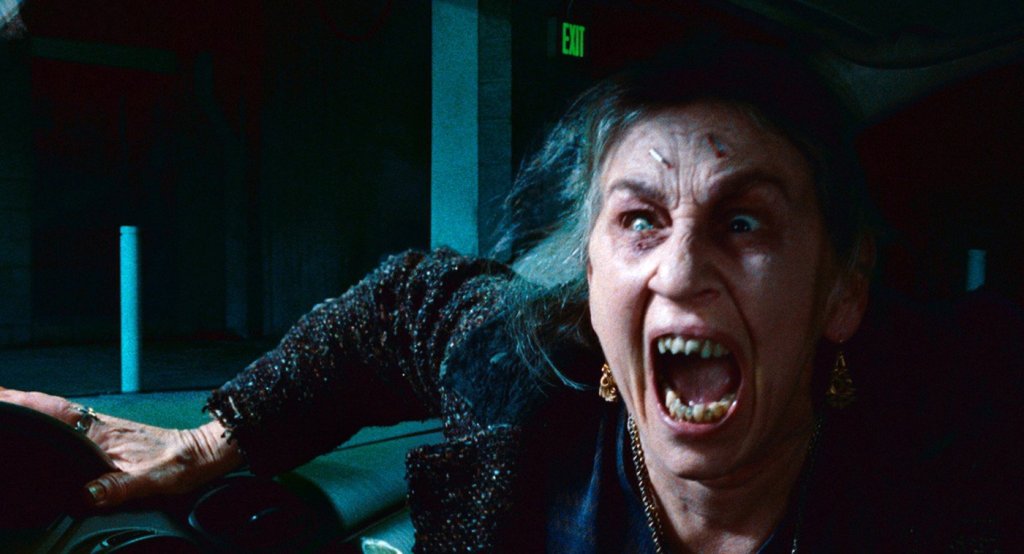
Drag Me to Hell (2009)
For some, Multiverse of Madness isn’t about the script or the drama, or even the character development. It’s about Sam Raimi returning to the big screen. Before revolutionizing the superhero movie genre with his Spider-Man trilogy, Raimi cut his teeth as a premier horror director, creating the nearly perfect Evil Dead trilogy. Drag Me to Hell brings Raimi back to horror after almost a decade in the world of big-budget superheroes, and he proves that he has not lost a step.
Switching from the heroics of Marvel Comics to the moralizing of E.C. Comics, Drag Me to Hell stars Allison Lohman as Christine, a banker who decides to go against her principles to impress a boss and denies a mortgage extension to an elderly woman. In retaliation, the woman curses Christine, setting the young woman on an increasingly madcap and stomach-churning mission to make things right. Like Bruce Campbell’s Evil Dead hero Ash Williams before her, and the MCU Illuminati after her, Christine gets thoroughly punished for her misdeed, much to the delight of the camera. Anyone who loved watching good people suffer in Multiverse of Madness will get plenty of spiteful joy from Drag Me to Hell.
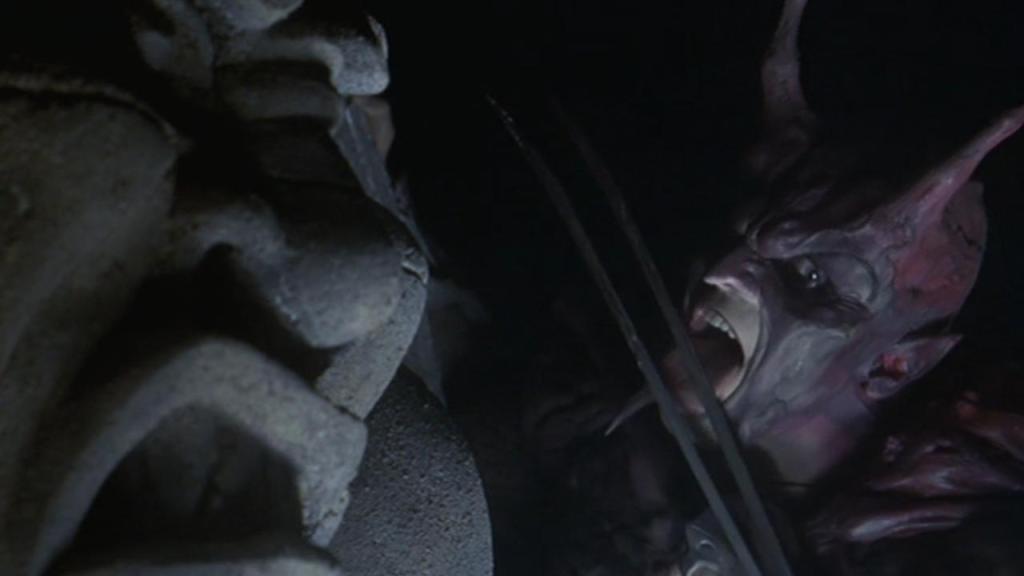
Faust: Love of the Damned (2000)
Many have called Multiverse of Madness the first Marvel horror movie. While that might be a surprising claim to some, horror and superheroes have come together on screen with surprising regularity. Not only did Blade kick off the second wave of superhero movies, but movies such as The Crow and Swamp Thing have long mixed the genres. But few have done so with as much aplomb as Faust: Love of the Damned. Directed by frequent Stuart Gordon collaborator Brian Yuzna, creator of gross-out classics such as Society and Beyond Re-Animator, Faust: Love of the Damned adapts the hard-edged independent comic book from writer David Quinn and artist Tim Vigil.
Faust tells the story of John Jaspers (Mark Frost, but not the one from Twin Peaks), who makes a deal with the demonic M (Wishmaster star Andrew Divoff) to gain powers to avenge his murdered girlfriend. As Faust, who looks like a mash-up of Batman and Wolverine, Jaspers cuts a grisly path through the underworld, drawing the attention of detective Dan Margolies (Jeffrey Combs). Although the movie isn’t quite as gross as that plot and cast suggest, and it severely mishandles a sexual abuse subplot, few movies so gleefully combine superheroes and horror as Faust: Love of the Damned.
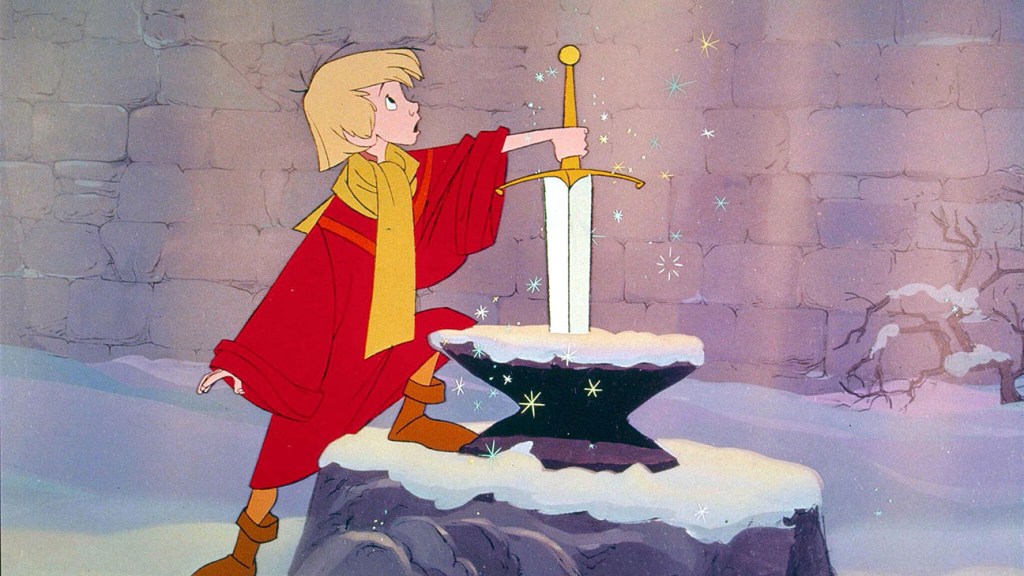
The Sword in the Stone (1963)
For most Doctor Strange fans, the character’s appeal lies in the different ways the hero can solve his problems. Where other superheroes can only bludgeon their enemies into submission, Strange can bargain with Dormammu or engage his evil variant in a symphonic stand-off. But in the same year that the Master of the Mystic Arts debuted in Strange Tales #110, Walt Disney Pictures gave the world one of the most exciting wizard duels with its take on Arthurian legend, The Sword in the Stone.
Based on the T.H. White novel of the same name, The Sword in the Stone portrays the early days of Wart (voiced by Rickie Sorensen, Richard Reitherman, and Robert Reitherman), the boy who would grow up to be King Arthur. Under the tutelage of Merlin (Karl Swenson), Wart learns lessons in magic, none so striking as the duel between the wizard and his nemesis, Mad Madam Mim (Martha Wentworth). Wart watches on as the sorcerers gleefully stretch reality to outwit one another, transforming themselves into blue bunnies and pink chickens. Although lighter in tone than the contests in Doctor Strange, The Sword in the Stone‘s battle demonstrates the boundless imagination offered by magical contests.
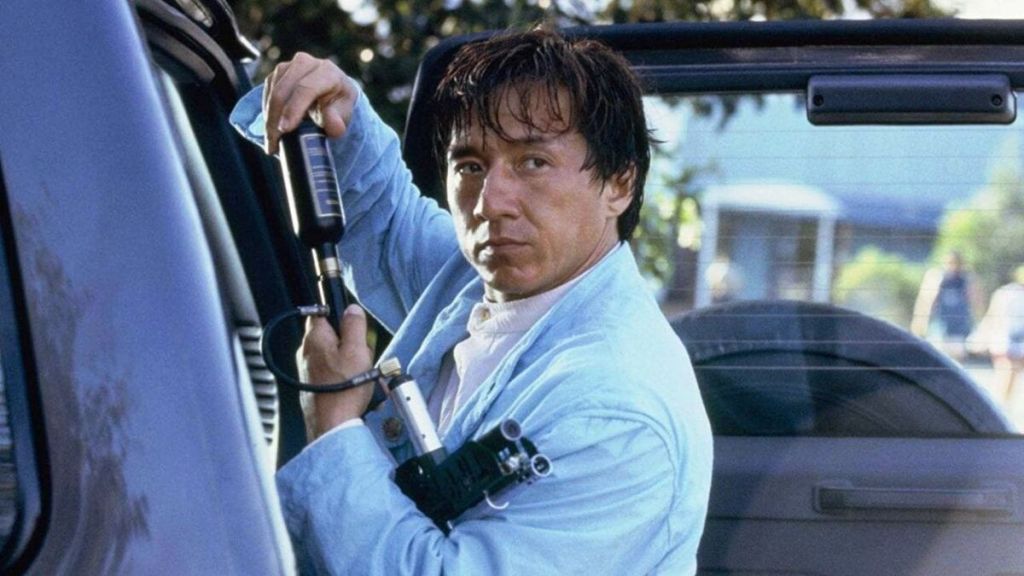
Jackie Chan’s First Strike (1996)
On the one hand, Jackie Chan‘s fight scenes take place in the real world and thus have little to do with the magical one-up-manship on display in Doctor Strange movies. On the other hand, I defy anyone to watch a Jackie Chan fight scene and tell me it isn’t magical. A master of martial arts and physical comedy, Chan brings everything he can find into the fray, desperately grasping everyday objects to fend off attackers.
The fourth entry in his beloved Police Story series, First Strike may not have the prestige of the first two parts, as its James Bond-influenced plot represents a departure from the series. But it does have an all-timer in the form of the battle between Chan and a bevy of baddies. Vastly outnumbered but never outsmarted, Chan uses everything at his disposal to stay in one piece, most improbably a stepladder that he somehow swings around in an unbelievable flurry. The music battle in Multiverse of Madness may be among the best in the MCU, but the franchise has a long way to go before it reaches Jackie Chan levels.
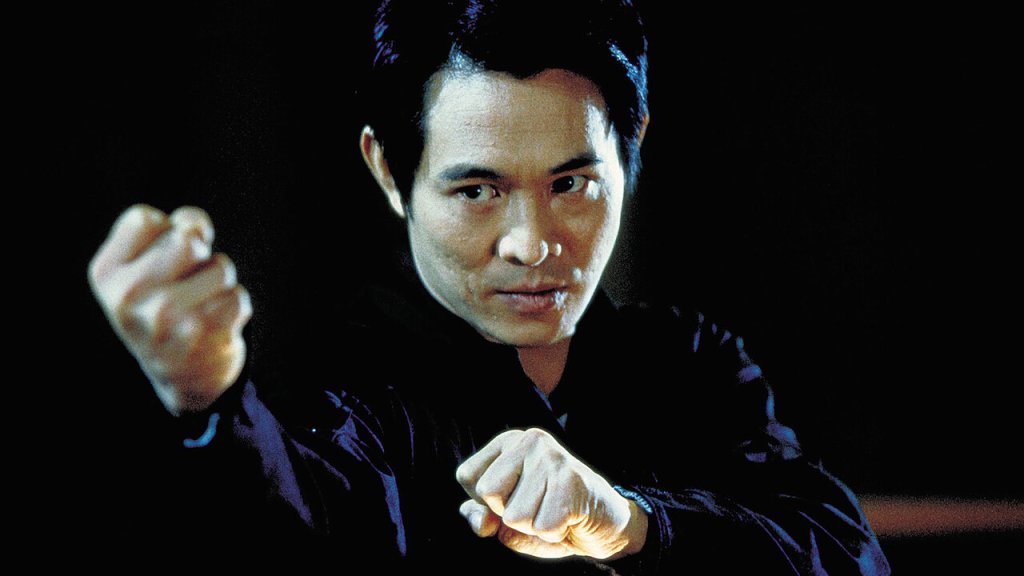
The One (2001)
Like Jackie Chan, Chinese star Jet Li brought jaw-dropping action to American audiences. But with The One, directed by Hong Kong staple James Wong and written by The X-Files alum Glen Morgan, Li adds to his action a multiversal twist. Li gives a dual performance as both LA police officer Gabe Law and as Gabriel Yulaw, renegade agent for the MultiVerse Authority (MVA). Yulaw uses the MVA’s resources to hunt down and destroy all of his variants, his power growing exponentially with each alternative Gabriel he destroys. Only the virtuous Gabe, who also grows in power as Gabriel destroys his doubles, can stop him.
With X-Men only a year old and Spider-Man a year away, The One was released to audiences primed by The Matrix for sci-fi-infused kung-fu but unfamiliar with comic book premises. But today, when watercooler conversations center on the Time Variance Authority from Loki, the movie’s premise is far more palatable. Add into the mix outstanding performances from always-great actors such as Delroy Lindo and Carla Gugino, and The One is a classic waiting to be rediscovered.

The Love Witch (2014)
The biggest criticisms leveled at Multiverse of Madness involved the movie’s treatment of Wanda Maximoff, the Scarlet Witch. Despite a wonderfully unbridled performance by Elizabeth Olsen, Wanda’s heel turn struck some as unearned at best and, at worst, reinforcing dangerous sexist tropes. The latter problem stems from more than just Marvel movies, as patriarchal systems have long used stories of witches and devil’s consorts to spread misogyny.
For those who want a more nuanced portrait of powerful women, there’s The Love Witch by director Anna Biller. Thoroughly embracing the campy tone of 60s erotic horror, The Love Witch stars Samantha Robinson as Elaine, a young witch rebuilding her life after the death of her husband. No one’s victim, Elaine uses her powers to entrance and dispatch men as she pleases, all displayed in searing Technicolor. The movie’s arch tone may not work for everyone, but for those who want witchy fun from a woman’s perspective, The Love Witch may be just the thing.
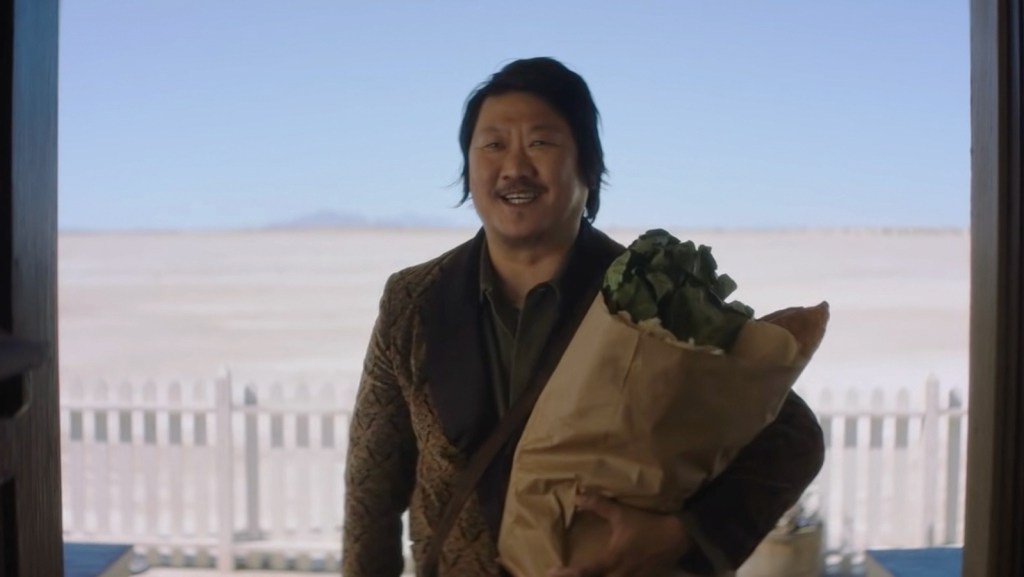
Nine Days (2021)
Wong presents one of the biggest challenges to those adapting Doctor Strange for modern audiences. A holdover of the “mighty whitey” stories from which the hero’s mythos draws, Wong in the comics is a manservant of unclear Asian descent, who devotes his life to aiding the pursuits of white man Strange. Kevin Feige and the Marvel team took pains to correct this problem in two ways, first by making Wong an equal to Strange (borrowing from the great comic Doctor Strange: Season One by Greg Pak and Emma Ríos) and second by casting Benedict Wong. Thanks to the actor’s charismatic and nuanced performance, Wong has become one of the MCU’s most beloved characters.
While Marvel has not yet made the most of Wong as an actor, other directors have had the good sense to give him meatier roles. Most recently, director Edson Oda cast Wong in the fantasy drama Nine Days. Wong plays Kyo, who lives and works alongside protagonist Will (played by the equally great and equally under-used by Marvel Winston Duke). Kyo helps Will judge souls hoping to be reincarnated and plays an important part in the latter’s philosophical journey. A rich film that raises deep questions, Nine Days is bolstered by a remarkable cast that includes not only Wong and Duke but also Zazie Beetz and Bill Skarsgård.
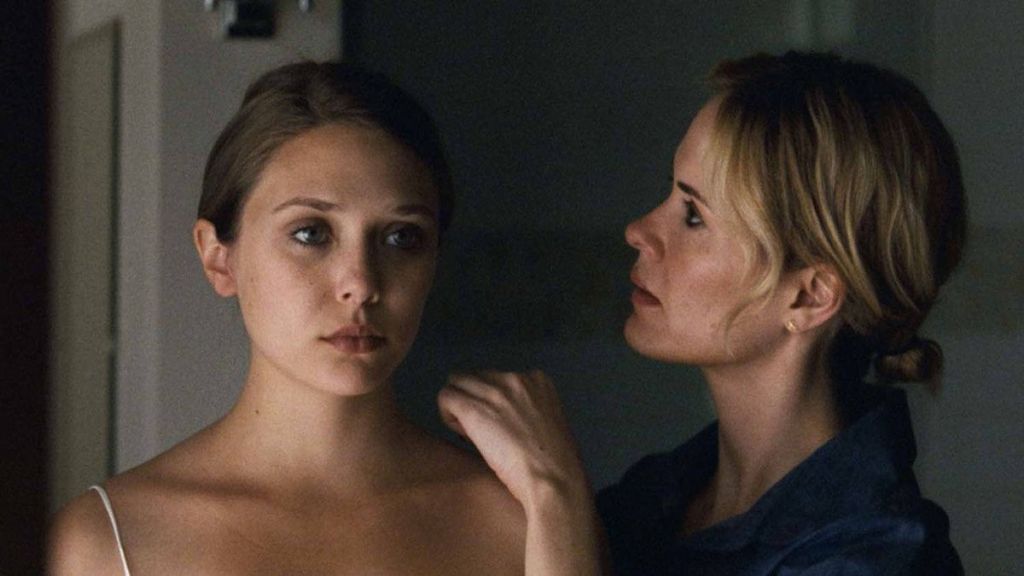
Martha Marcy May Marlene (2011)
As mentioned earlier, even those who dislike Multiverse of Madness agree that Elizabeth Olsen gives the movie’s best performance. It’s hardly the first, as Olsen has been wowing the masses since she first played Maximoff (in full) in Avengers: Age of Ultron. But Olsen’s true calling card was the thriller Martha Marcy May Marlene, by director Sean Durkin. Olsen plays Martha, a young woman who recently broke from an abusive cult and returned to her family. As her sister Lucy (Sarah Paulson) tries to help Martha reintegrate into society, she becomes concerned that Martha – who also goes by Marcy May and Marlene Lewis – may not be the person she expected.
Durkin shoots the movie with an unwavering resolve that only ratchets up the intensity, anchored by strong performances by Paulson, Hugh Dancy, and John Hawkes. But Martha Marcy May Marlene is absolutely a showcase for Olsen. A mercurial character who toes the line between raw vulnerability and cruel manipulation, Martha et. al. give Olsen ample room to show off the depth she’s only hinted at in her MCU roles.
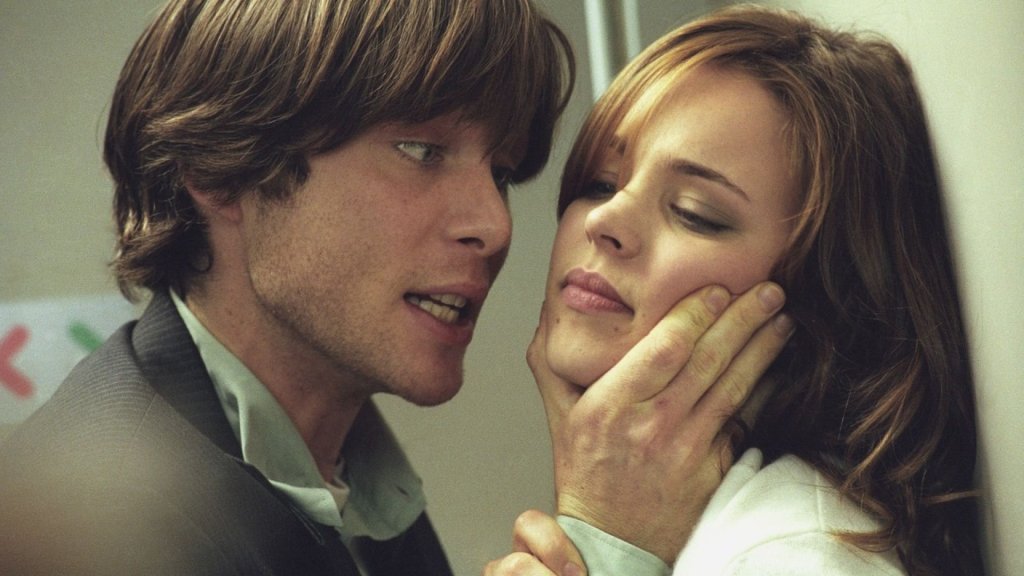
Red Eye (2005)
Perhaps the biggest surprise of Multiverse of Madness is that Raimi gave Rachel McAdams something to do. Where the first film relegated McAdams to a forgettable love interest, the sequel makes the Earth-838 version of her character Dr. Christine Palmer into an active part of the plot. Even then, however, the role makes little use of McAdams’s talents (outside of asking her to accept a ludicrous wig as her natural hair). Fortunately, it’s not hard to find movies that take advantage of everything she has to offer, whether it’s her breakout in Mean Girls or her scene-stealing turns in comedies Game Night and Eurovision Song Contest: The Story of Fire Saga.
One of McAdams’s best and most-overlooked performances came in the thriller Red Eye, from the late, great Wes Craven. McAdams plays hypercompetent hotel manager Lisa, who meets a friendly man with the questionable name Jackson Rippner (Cillian Murphy) on an overnight flight to her father’s home in Florida. Rippner’s pleasantries soon turn menacing, when he begins threatening Lisa, forcing her to help him assassinate a dignitary staying at her hotel. In addition to being a true nail-biter, Red Eye lets McAdams run the gamut performance-wise, from vulnerable victim to confident hero.
